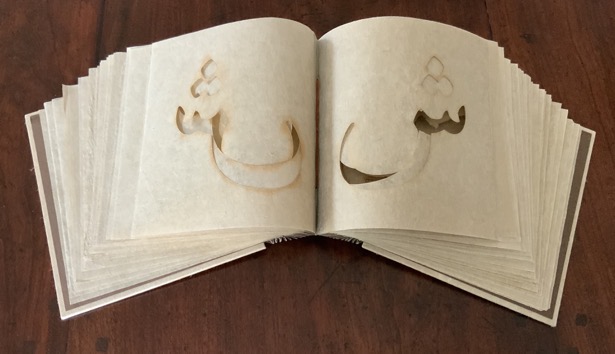Arts and Artists and a Little Hot Chocolate


28 Letters (2013), by Islam Aly
The loss of Roger Scruton, who recently died at the age of 75, is a grievous one for us all, whether we know it or not. Outside of conservative circles, Scruton is known mainly for his critiques, but critique wasn’t what he excelled at. His special gift was for celebration and praise. My friend and colleague David Corey pointed me to Scruton’s late book on Wagner’s Ring tetralogy, which I have devoured over the past few days. Scruton loved Wagner and was indeed something of a philosophical Wagnerian, and in this book he makes an extraordinarily eloquent case for Wagner’s account of human psychology and society. I don’t accept the case, but I admire the cogency with which Scruton makes it. Along the way he offers us many set-pieces on a wide range of subjects. Here’s one:
Erotic love, in its true inter-personal form, does not belong in the world of contracts and deals. Its foundation is not a contract but a vow. Contracts have terms, and when the terms are fulfilled they are at an end. Vows do not have terms, and cannot be undone by any calculation. The unity created by them is, as Hegel put it (in his discussion of marriage), a ‘substantial unity’: not a unity of purpose or place or pleasure but a unity of being. Lovers dedicate themselves to each other, and it is in part for this reason that they are so much at risk: to place a commission in another’s hands is to risk something; to place yourself in another’s hands is to risk everything. […]
In the world that we know today sex is widely viewed as a commodity, and the act of love as a ‘transaction’ involving pleasure in the sexual parts – a matter of desire and satisfaction, rather than existential commitment. We find this view already in Freud’s Three Essays on Sexuality, and shaped as orthodoxy in the writings of Alfred Kinsey. It is embodied in a certain kind of sex-education, which seeks to relieve young people of the burden of shame and guilt, and to open the path to pleasure. If this view of sex were correct then the outrage of rape would be impossible to explain. Rape would be just as bad as being spat upon: but hardly worse. The fact that, in almost all criminal codes, rape is next to murder in the hierarchy of offences, would be a mystery, a hangover from superstitions that humanity is on the way to discarding. And the trivializing of rape is what we find in a world where women are seen as instruments of pleasure, sexual ‘objects’ from which the subjective essence has been wiped away.
Over at Mockingbird, I posted a little sermon about The Young Pope.
I had a really good time talking with Sarah Mackenzie on the Read-Aloud Revival Podcast.
Here’s a provocative short essay by Nick Carr on social media, context collapse, content collapse, and context restoration.

Here’s a fine brief reflection by my colleague Philip Jenkins on World War I and the art of Natalia Goncharova, who was recently featured at the Tate Modern.
STATUS BOARD
- Work: Galatians today, Frankenstein tomorrow....
- Music: Well, Wagner of course.
- Viewing: There was The Young Pope and now some … Wagner.
- Food and Drink: Lots of Ibarra Mexican hot chocolate, which is very fine for everyday, but now that I’m no longer living in Chicagoland I remember with great longing the various amazing hot chocolates at Xoco.
Many of you know this already, but: The various email clients people use render this newsletter rather differently, so if you don’t like the way it looks, click the link at the bottom of this page that says “View this email online.” That’ll give it to you, on any device, as a nicely formatted page.